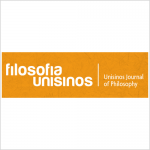Attention and the limits of conscious experience
Vol 16, No 2 (2015) • Filosofia Unisinos - Unisinos Journal of Philosophy
Autor: Francisco Pereira
Resumo:
The phenomenological conception of common sense inspired by James (1890) claims that attending is essentially a conscious mental phenomenon. The modal philosophical implications of this thesis regarding the nature of attention are clear. It is not possible to attend something without being conscious of that thing. On the basis of classical studies on visual pathologies such as blindsight and recent experiments with non-pathological subjects, this paper argues that the Jamesian philosophical conclusion regarding the metaphysics of attention is false. Evidence suggests that in fact it is possible to attend to objects without consciously experiencing them.
ISSN: ISSN: 1984-8234
Texto Completo: http://revistas.unisinos.br/index.php/filosofia/article/view/fsu.2015.162.04
Palavras-Chave: attention, consciousness, blindsigh,common se

Filosofia Unisinos - Unisinos Journal of Philosophy
The journal Filosofia Unisinos - Unisinos Journal of Philosophy is published once every four months by Universidade do Vale do Rio dos Sinos.
Articles must be original, unpublished, and not under consideration for publication anywhere else and can be written in Portuguese, English or Spanish
Filosofia Unisinos - Unisinos Journal of Philosophy prints articles, translations and critical book reviews. It also reprints papers that are considered fundamental to the area when authorized written permission is given by the original publisher.
